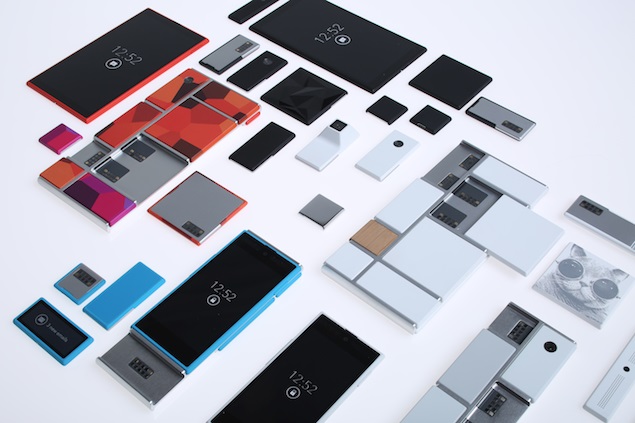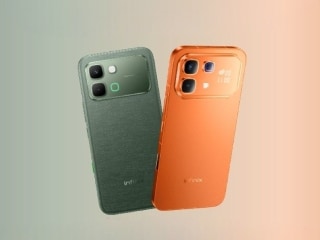- Home
- Mobiles
- Mobiles News
- Google releases Project Ara Module Developers Kit with design guidelines
Google releases Project Ara Module Developers Kit with design guidelines

The newly released MDK version 0.10 covers guidelines for developers for designing Project Ara smartphones, creating valid module dimensions, components and layout for power pads.
Paul Eremenko, Head, Project Ara said in a Google+ post, "Today we're announcing the first release of the Project Ara Module Developers Kit (MDK) v0.10. This is a very early version but our goals are to give the developer community an opportunity to provide feedback and input, and to help us ensure that the final MDK - anticipated at the end of 2014 - is elegant, flexible, and complete."
The post clarifies that Google plans to release the final MDK version by the end of 2014.
The Project Ara design scheme comprises of what Google calls an endoskeleton (endo) and modules. The endo is the structural frame that holds all the modules in place, while a module can be anything, from a new application processor to a new display or keyboard, an extra battery, a pulse oximeter or some other customisable hardware unit.
The MDK documentation further reveals three different Ara skeleton sizes namely, mini, a basic unit; medium, a mainstream unit, and jumbo, a phablet-style model.
Notably, Google will be the only provider of Ara skeletons as of now and the search engine giant plans that the smaller modules will come from third-party developers.
"Next week, we're hosting the first Project Ara Developers Conference at the Computer History Museum in Mountain View," Eremenko added.
Project Ara's official site explains, "The Module Developers Kit (MDK) defines the Ara platform for module developers and provides reference implementations for various design features. The Ara platform consists of an on-device packet-switched data network based on the MIPI UniPro protocol stack, a flexible power bus, and an elegant industrial design that mechanically unites the modules with an endoskeleton."
Earlier, Google gave the world its first glimpse of the Project Ara modular prototype smartphone at the 'Launch' event in San Francisco. A Project Ara team member demoed a non-functional Wi-Fi model of the first modular smartphone.
In January, when Google sold Motorola Mobility to Lenovo, the Mountain View giant kept Project Ara (and the Motorola Advanced Technology unit) with itself.
Get your daily dose of tech news, reviews, and insights, in under 80 characters on Gadgets 360 Turbo. Connect with fellow tech lovers on our Forum. Follow us on X, Facebook, WhatsApp, Threads and Google News for instant updates. Catch all the action on our YouTube channel.
Related Stories
- Samsung Galaxy Unpacked 2025
- ChatGPT
- Redmi Note 14 Pro+
- iPhone 16
- Apple Vision Pro
- Oneplus 12
- OnePlus Nord CE 3 Lite 5G
- iPhone 13
- Xiaomi 14 Pro
- Oppo Find N3
- Tecno Spark Go (2023)
- Realme V30
- Best Phones Under 25000
- Samsung Galaxy S24 Series
- Cryptocurrency
- iQoo 12
- Samsung Galaxy S24 Ultra
- Giottus
- Samsung Galaxy Z Flip 5
- Apple 'Scary Fast'
- Housefull 5
- GoPro Hero 12 Black Review
- Invincible Season 2
- JioGlass
- HD Ready TV
- Laptop Under 50000
- Smartwatch Under 10000
- Latest Mobile Phones
- Compare Phones
- OPPO A6v 5G
- OPPO A6i+ 5G
- Realme 16 5G
- Redmi Turbo 5
- Redmi Turbo 5 Max
- Moto G77
- Moto G67
- Realme P4 Power 5G
- HP HyperX Omen 15
- Acer Chromebook 311 (2026)
- Lenovo Idea Tab Plus
- Realme Pad 3
- HMD Watch P1
- HMD Watch X1
- Haier H5E Series
- Acerpure Nitro Z Series 100-inch QLED TV
- Asus ROG Ally
- Nintendo Switch Lite
- Haier 1.6 Ton 5 Star Inverter Split AC (HSU19G-MZAID5BN-INV)
- Haier 1.6 Ton 5 Star Inverter Split AC (HSU19G-MZAIM5BN-INV)

















